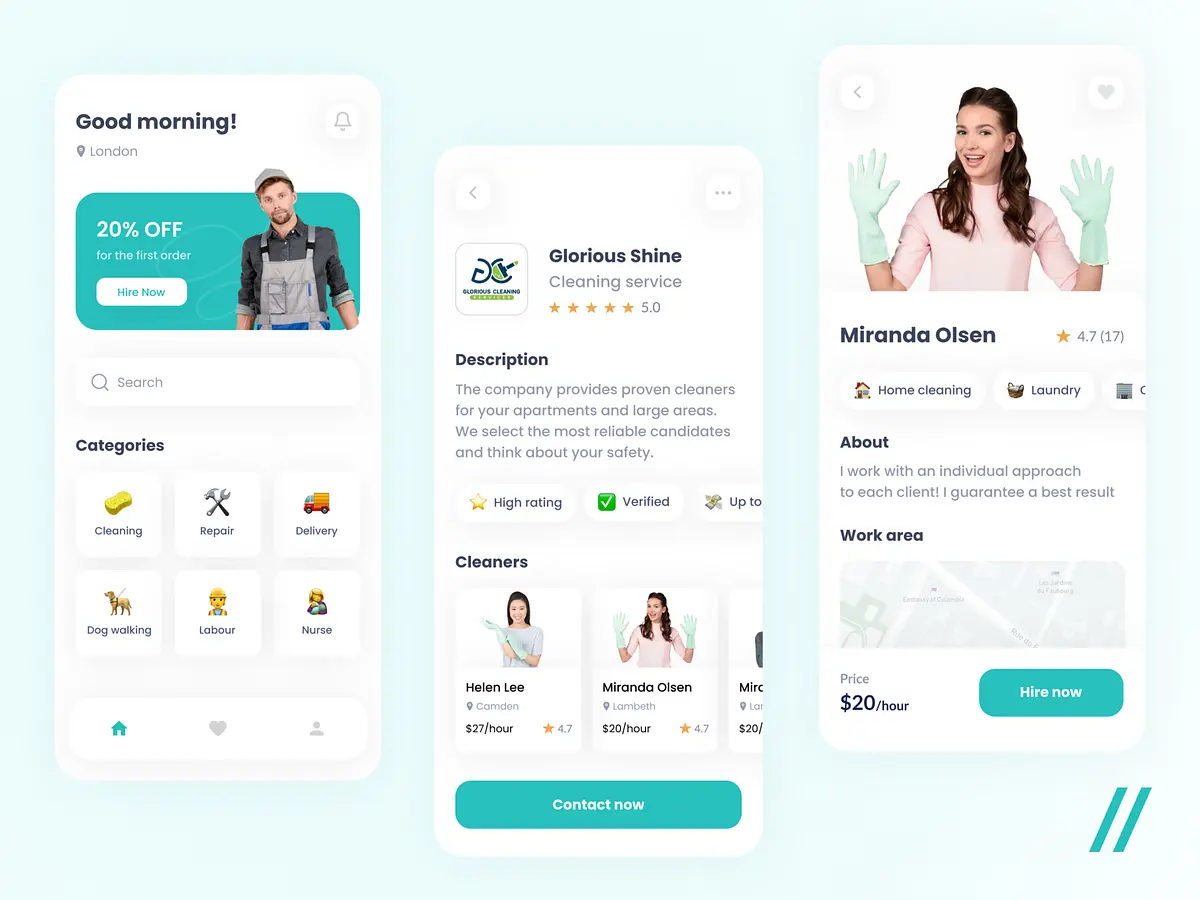Discover Different Types of IT Consulting – Choose the right Services


The technology market and IT consulting services are estimated at $48 billion, about 20% of the global consulting market. Since 2011, this market has grown yearly, with a Compounded Annual Growth Rate (CAGR) of approximately 2.5%. Industry experts expect a big increase in demand for IT consulting services in the future, driven by major technological trends, including digitization, analytics, cloud, robotics, and the Internet of Things (IoT).
According to ALM Intelligence, cited by Consultancy.eu in their ‘Market Segments’ section, IT consulting is narrowly defined. As a result, this segment accounts for less than a quarter of the overall industry. Including IT implementation, systems integration, and software management in the definition, the market size could increase threefold. Other analysts, who use a broader definition, estimate that IT consulting makes up 40% to 50% of the market.
This article defines consulting, identifies the different types of IT consulting services, and explains their importance. Understanding these distinctions will help you select the most suitable consulting approach for your project.
IT consulting refers to providing professional advice and expertise to businesses about how to use information technology (IT) best to achieve their business objectives. IT consultants assess a client’s IT needs, plan technology solutions to solve business problems, improve the efficiency of IT systems, and help implement those systems. Their services can range from strategic advice on technology choices, system design, and implementation to operational improvement and IT asset management.

IT Consulting
What truly makes IT Consulting important is its benefits, here are the most significant ones:
Strategic Alignment: IT consultants help align technology strategies with business objectives, ensuring that investments in tech drive growth and efficiency.
Expertise and Insights: Consultants provide specialized knowledge and insights that can be crucial for navigating complex IT challenges, such as cloud migration, system integration, or cybersecurity threats.
Cost Efficiency: By optimizing IT operations and investments, consultants can help reduce costs. They provide advice on the best use of resources, potentially eliminating unnecessary expenses on outdated technologies or inefficient processes.
Enhanced Security: With their expertise in the latest security protocols, IT consultants can safeguard businesses against cyber threats, ensuring data integrity and compliance with regulations.
Innovation and Adaptability: Consultants can introduce new technologies and processes that foster innovation. They help businesses stay current with technological advancements, adapting quickly to changes in the market.
Project Management: IT consultants often bring strong project management skills to help ensure that IT projects are completed on time and within budget, reducing the risk of project failure.
Training and Development: They also train staff on new technologies and systems, boosting productivity, and empowering teams to handle tech-driven tasks effectively.
Why IT Consulting is a must for your business; check these articles:
IT Consulting For Small Business: What You Need To Know
What is IT Consulting? The Key to Unlocking Your Business’s Potential
As you’ve followed this long, this is what you’re here for:

Types of IT Consulting
Looking for a trustworthy IT Consulting company?
TECHVIFY is the best option for you. Book a free consultation for an accurate time and cost estimation for your project.
Define Specific Goals and Needs: Clearly outline what you want to achieve with your IT initiatives. Understanding your objectives, whether improving efficiency, enhancing security, or implementing new systems, will help you identify a consultant who specializes in those areas.
Evaluate Expertise and Track Record: Research potential consultants to assess their expertise and experience relevant to your needs. Look for proven success stories, client testimonials, and industry credentials demonstrating their capability to handle projects like yours.
Assess Compatibility and Approach: Ensure the consulting firm’s approach aligns with your business culture and operational style. Consider their communication style, problem-solving strategies, and whether they provide flexible, adaptable solutions that can grow with your business.

Choose the right services
Review Security, Compliance, and Technology: Verify that the consultant uses up-to-date technology and follows stringent security protocols, especially if they manage sensitive data. Compliance with relevant industry regulations is crucial to avoid legal and financial penalties.
Understand Pricing and Contract Terms: Examine the cost structure and ensure transparency in their billing practices. Request a detailed proposal that includes a breakdown of costs, project milestones, and expected outcomes. Ensure the Service Level Agreement (SLA) outlines performance metrics, responsibilities, and accountability measures.
As you’ve found out what are the different types of consulting. Understanding that the rapidly changing technology landscape demands expert IT consulting to help businesses stay competitive and secure. The IT consulting market is expanding, driven by technologies like AI and the Internet of Things (IoT). Businesses can benefit greatly from the specialized knowledge that companies like TECHVIFY offer. TECHVIFY’s services align technology with business strategies, enhancing efficiency, cutting costs, and bolstering security.
Ready to take your IT to the next level? Choose TECHVIFY. With our strong track record in delivering effective IT solutions, we’re here to guide you through the complexities of modern technology. Don’t wait—reach out to TECHVIFY today to secure a competitive edge for your business.
TECHVIFY – Global AI & Software Solutions Company
For MVPs and Market Leaders: TECHVIFY prioritizes results, not just deliverables. Reduce time to market & see ROI early with high-performing Teams & Software Solutions.


Table of ContentsI. What is IT consulting?II. Benefits of IT ConsultingIII. The Different Types of IT Consulting Services1. Technology Strategy Consulting2. IT Infrastructure Consulting3. Cybersecurity Consulting4. Cloud Consulting5. Software Consulting6. Compliance and Risk Management Consulting7. Data Analytics and Business Intelligence Consulting8. ERP (Enterprise Resource Planning) Consulting9. IT Performance Improvement Consulting10. Change Management ConsultingIV. Choosing the Right IT Consulting ServiceConclusion Technological advancements are paving new paths for companies across different sectors, and the logistics industry is no exception. According to a survey by Gartner, 87% of supply chain professionals plan to invest in enhancing the resilience of their platforms. Logistics encompasses…
26 July, 2024

Table of ContentsI. What is IT consulting?II. Benefits of IT ConsultingIII. The Different Types of IT Consulting Services1. Technology Strategy Consulting2. IT Infrastructure Consulting3. Cybersecurity Consulting4. Cloud Consulting5. Software Consulting6. Compliance and Risk Management Consulting7. Data Analytics and Business Intelligence Consulting8. ERP (Enterprise Resource Planning) Consulting9. IT Performance Improvement Consulting10. Change Management ConsultingIV. Choosing the Right IT Consulting ServiceConclusion The technology sector is advancing at an unprecedented pace, and the HR landscape is evolving right alongside it. To attract top talent, HR professionals and organizations need to stay ahead of emerging technology hiring trends. This year, we are witnessing significant…
25 July, 2024

Table of ContentsI. What is IT consulting?II. Benefits of IT ConsultingIII. The Different Types of IT Consulting Services1. Technology Strategy Consulting2. IT Infrastructure Consulting3. Cybersecurity Consulting4. Cloud Consulting5. Software Consulting6. Compliance and Risk Management Consulting7. Data Analytics and Business Intelligence Consulting8. ERP (Enterprise Resource Planning) Consulting9. IT Performance Improvement Consulting10. Change Management ConsultingIV. Choosing the Right IT Consulting ServiceConclusion Customized software plays a major role in managing various tasks within the telecom industry. It is essential for allocating numbers to subscribers and managing networks through optimized and AI-enabled routing protocols. Additionally, it aids in detecting fraud with intelligent telecom software…
24 July, 2024


Thank you for your interest in TECHVIFY Software.
Speed-up your projects with high skilled software engineers and developers.
By clicking the Submit button, I confirm that I have read and agree to our Privacy Policy